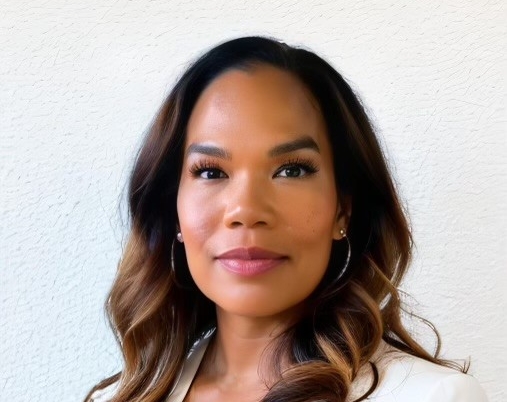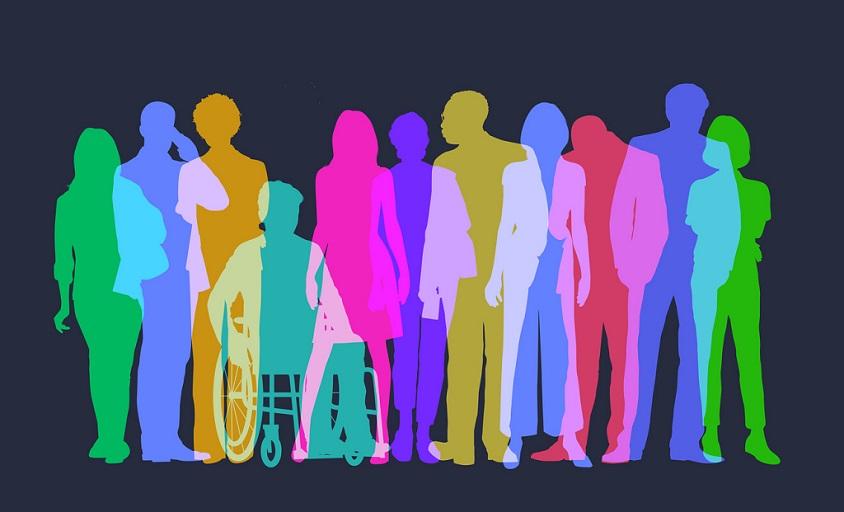Commentary: Invisible women — ensuring every woman is seen
The following op-ed was originally published by the Orlando Sentinel
In this compelling commentary, Televerde graduate turned Adobe marketing lead, Lorena Fortuna, shines a spotlight on the often-overlooked experiences of women in society. Drawing from her own journey and insights, Lorena explores the pervasive issue of women being rendered “invisible” in various spheres of life. Through a poignant narrative, she discusses the importance of recognition, representation, and empowerment for women of all backgrounds. Fortuna’s perspective offers a thought-provoking exploration of the challenges faced by women and the crucial steps needed to ensure their visibility and significance in society.
As Women’s History Month unfolds, I’m deeply reflective. It’s a period dedicated to honoring women’s achievements worldwide, something I wholeheartedly admire. However, I’ve sometimes felt a gap between the celebrated narratives and stories like mine. Despite its good intentions, Women’s History Month seems to miss fully representing and advocating for every woman, especially those with incarceration histories.
It’s disheartening to see the lack of understanding and support in 2024. Occasionally, stories emerge of individuals who have overcome their past as “convicts” to become advocates for change. These narratives are inspiring, and I deeply admire women who see their previous incarcerations not as shame but as symbols of courage for our community. Such stories capture attention and briefly awaken the public’s empathy. I’ve been highlighted at events as a source of inspiration, receiving admiration and social media shares. While I deeply value this recognition, it leads me to question what comes after the applause dies down.
This brings me to a critical point: the role of female leaders and influencers who have never experienced incarceration. Their lack of engagement on these issues is noticeable. I wonder where their advocacy for systemic changes that would support my community is. Despite their contributions to diversity, equity, and inclusion (DEI), the challenges faced by incarcerated and formerly incarcerated women seem to remain off their radar. This neglect highlights how certain groups – my community – are often ignored, our voices silenced, and our needs overlooked in the broader discussion of gender equity and inclusion.
The statistics paint a bleak picture: incarcerated women represent the fastest-growing segment of the prison population, with over 60% facing unemployment after release and a significant number reentering the system within three years. These are real women – mothers, daughters, sisters – caught in a mostly ignored cycle, endangering their futures and those of their children. Are they not worthy of the same support and solidarity many women openly advocate for?
My transition from incarceration to reintegration has underscored the crucial need for specialized support and opportunities. Recognizing and tackling these obstacles can help break the cycle of reoffending and foster real, enduring change. However, this pressing issue often goes unnoticed in many DEI discussions. My story is a mix of challenges and serendipitous opportunities, particularly my fortunate involvement with a for-profit company that employs prison labor ethically. It also shows the significant positive impact of genuinely understanding and investing in this marginalized community.
Yet, this glimmer of hope is often dimmed by skepticism and criticism. A concerning trend among some media has emerged: a shift from impartial journalism to activism, where confirmation bias overshadows the nuanced realities of prison labor. This approach risks undermining initiatives critical to rehabilitating and supporting incarcerated women. Without a genuine effort to engage, to ask the deeper questions, or to consider the nuances of rehabilitation and support initiatives, it feels like an injustice. It’s devastating to witness the very programs that offer a lifeline to many incarcerated women being dismissed so cavalierly. As someone who has lived through these experiences, I’ve seen firsthand how these narratives often overlook the positive stories of change and resilience, leaving the untold stories of progress and transformation out of the public eye.
Change begins with awareness, empathy and a commitment to value every woman’s journey beyond her past. It’s about driving through, not around, the communities that society has long chosen to ignore. This Women’s History Month, let’s turn the spotlight on the “invisible women,” ensuring their stories emerge from the shadows into the bright light of inclusivity and recognition.


